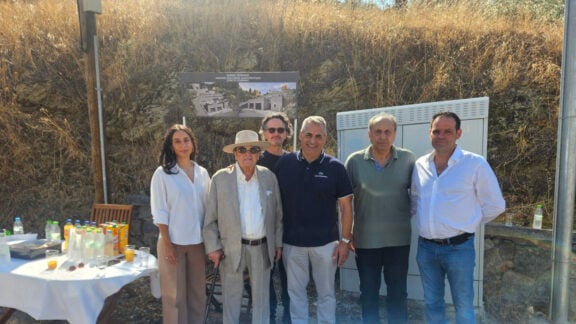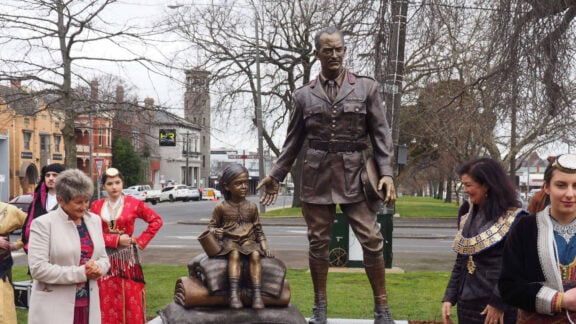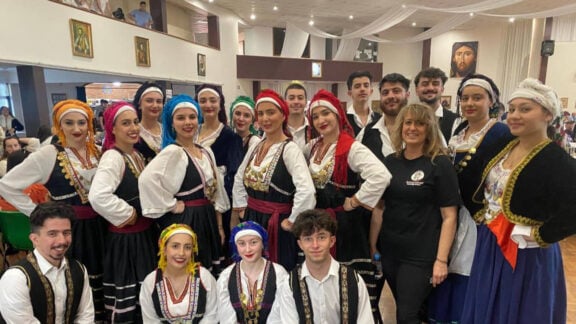If there was any doubt how absurd the division in Cyprus is, then ask for the local time. Depending on which side of the island you find yourself, there will be an hour’s discrepancy, as the Republic of Cyprus has changed to winter daylight saving while the north has stuck with Turkey time. As the current Cyprus talks intensify, reaching a crescendo with the Mont Peredin and Geneva summits, it seems timely to take stock and review how an imagined solution effects, or deters, the politics of change and continuity.
There is no doubt that throughout its long history, four issues have particularly frustrated the Cyprus peace process: territory, property and security and guarantees. Clearly, each side has different concerns, interests and priorities − including prescribed ‘red lines’ − when it comes to these issues.
In terms of security and guarantees, for the Greek-Cypriots the ‘red line’ entails the withdrawal of all the Turkish troops from the island and abolition of all guarantor powers. As far as territorial adjustments and property are concerned, the Greek-Cypriots equate them with the ‘right of return’ for all refugees and the maximum recovery of the ‘lost lands’ that resulted from Turkey’s invasion in 1974.
In contrast, for Turkish-Cypriots, their security ‘red lines’ consists of their demand for Turkish military presence on the island and a guarantee from Turkey alone as effective measures that would protect them. Regarding territorial adjustments and the return of property, the Turkish-Cypriots have consistently advocated retaining most of northern Cyprus for economic and security reasons and minimising its impact on creating a ‘second wave’ of Turkish-Cypriot refugees.
So it was no surprise that when the negotiations did not reach a comprehensive settlement at Mont Pelerin and Geneva, though they ostensibly made progress by agreeing on the territorial criteria, acrimonious renditions and mutterings of blame became louder in Nicosia, Athens and Ankara.
The latest round of negotiations comes after 20 months of direct talks between the two current leaders, both of whom vigorously campaigned for the Annan Plan during the failed 2004 referendum. While the UN and others insist that the current talks date back to the (2008) Christofias-Talat period, this may be a political ploy to entice and retain AKEL and CTP support should a referendum eventuate.
Having learned from 2004, UN strategy – by and large − ever since has been to allow the Cypriots to determine the content of the negotiations, while they concentrate on the process. The game-plan to emerge was that once the two sides agreed on the territorial criteria, it would be interfaced with an actual territorial map, which would then open the way for all involved parties to discuss Cyprus’ security and guarantee arrangements. Ultimately, this would see the two leaders produce a Cypriot ‘authored’ comprehensive agreement, which would then be put to a separate simultaneous referenda sometime in the first half of 2017 – allowing enough time for campaigning, coalition building and convincing Cypriots of the virtues and benefits of the settlement.
The Mont Pelerin and Geneva conferences promised so much that it was inevitable that, psychologically, they could not possibly live up to their momentum. Addressing different audiences, expectations, often fed by Twitter- happy negotiators and facilitators, have had the opposite effect in Cyprus itself. The media – as communicative filter between elites and the public – initially conveyed back to Cyprus the impression of a voyeuristic infatuation with their situational attribution often rendering a lack of seriousness and solace of the occasion. In conjunction with its non-disclosure policy, a communication lacuna has compounded a culture of secrecy and leaks that nourish the pessimistic attitude that many Cypriots have of the talks, their prospects and ultimately their value.
Even though they took place between two compatible and affable leaders and a rather ‘creative’ and diligent UN, Mont Pelerin and Geneva offer us a timely reminder that the Cyprus talks, official negotiations, and first-track diplomacy − important as their contribution might be − are still nevertheless inadequate in their exclusive control of the peace process.
As previous attempts have revealed, by themselves they are unable to overcome the constraints that steadfastly prevent the resolution of the Cyprus conflict. There appears to be a missing link that prevents progress at the peace talks from resonating at either inter- or intra- communal relations.
Cyprus’ current dilemma between separatism and unification is expressed more tangibly in the new challenges posed by the doctrine of pre-emption. The difficulty of constructing a new peace paradigm in Cyprus is not only exacerbated by its communal polarisation, but is also vulnerable to internal and external tensions particularly as they relate to Turkey’s (and Greece’s) unpredictability and the growing disparity between the financially ‘accommodated’ and ‘dislodged’ classes on both sides of the island.
Negotiations are always a tricky business. Especially, when the stakes are so high and the returns are not so obvious. If not handled properly, the Cyprus talks run the risk of furthering the mood of despair among Cypriots and their readiness to surrender to the certainty of the status quo.
In such a case, failure of the current peace talks would see both communities, for difference reasons and in different ways, trading federalism for separatism as their preferred second-best solution. Under such circumstances, there is always the danger that the two-state solution will become, either deliberately or by osmosis, a historical endgame for both Greek and Turkish Cypriots.
* Dr Michális S. Michael is adjunct senior research fellow at the Faculty of Medicine, Nursing and Health Sciences of Monash University, honorary senior research fellow at La Trobe University, director of the Centre for Dialogue and his forthcoming book, Cyprus and the Roadmap for Peace: A Critical Interrogation of the Conflict by Edward Elgar Publishing, is co-edited with Dr Yücel Vural.









